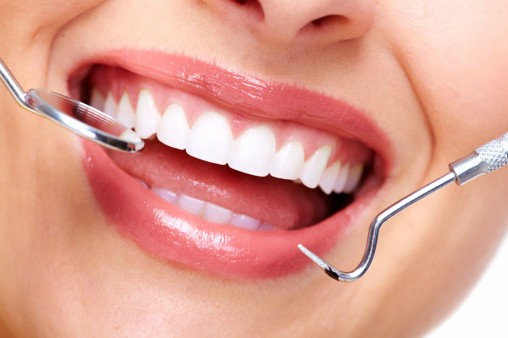By regularly visiting the dentist, having proper daily dental care, and by practicing good eating habits you too can successfully keep cavities away. Read our tips and find out more.
I am not going to sugarcoat it: Having a cavity is not fun. I was lucky enough to go through my childhood without cavities, thanks to fluoride treatments at the dentist, proper daily dental care and good eating habits. It wasn’t until many years later that I experienced the cavity diagnosis at the dentist and required a filling. While it took years for my teeth to reach this unfortunate fate, many children aren’t as lucky.
What is a Cavity?
Tooth decay is more common among young children than any other chronic illness. According to the Parents magazine, at least 4 million preschoolers suffer from tooth decay, an increase of more than 600,000 when compared to the last decade.
A cavity is a hole in a tooth caused by tooth decay. When a tooth is exposed to acid frequently (like foods and drinks which contain excess amounts of sugar and starch), tooth enamel continuously loses important minerals and tooth decay begins. The bacteria then creates plaque and once an area without calcium becomes large enough, the surface of the tooth collapses and creates a cavity. This permanent damage can only be fixed in one way: getting a filling at the dentist’s.
Kids and the Dentists
According to recommendations from the American Academy of Pediatric Dentistry Association, children should visit a dentist by their first birthday. However, a recent study showed only 10 percent of one-year olds and 24 percent of two-year olds have ever visited the dentist and around 40 percent of children ages 2 to 5 regularly get cavities.
How to Keep Cavities Away?
Here are some tips to keep your children (and yourself) clear of cavities:
- Brush and floss: The best way to limit cavities is to brush twice a day and floss each day. This will thoroughly clean teeth (if done properly) and get rid of bacteria, plaque and sugar from teeth.
- Avoid sugar: Bacteria loves sugar and limiting it is the best way to prevent cavities. Repeatedly exposing teeth to sugar prevents saliva from doing its job of naturally keeping the teeth clean.
- The importance of fluoride: Fluoride prevents the loss of minerals in tooth enamel and reduces the ability of bacteria to make acid. Tap water in big cities is often fluoridated, but you can also take fluoride supplements. The easiest way to get the proper amount of fluoride is to drink fluoridated bottled water or use toothpaste with fluoride in it. Dentists are also able to apply a protective fluoride seal to children’s teeth (a study found that children age 1 who received this treatment twice a year were four times less likely to get cavities in their baby teeth).
- Don’t share teeth tools: While cavities aren’t hereditary, parents may not realize that they can unknowingly infect their children. Babies are born without the harmful bacteria in their mouth, but eating from the same spoon as your baby, or letting a child brush their teeth with your toothbrush can transfer your bacteria to them. If you have any dental problems, get them fixed immediately.
Brushing Tips
Brushing your teeth must be done right in order to help prevent tooth decay and cavities. Here’s how:
- Brush at least twice a day (after breakfast and before bed).
- Brush ALL teeth, not just the front ones.
- Take time while brushing and spend at least two to three minutes on the entire mouth.
- Use a toothbrush with soft bristles and replace the toothbrush every three months.
- Floss teeth once a day (this will help get rid of hidden food the toothbrush can’t reach).
[divider]
How do you keep cavities away from your child? Do you use these techniques?





















